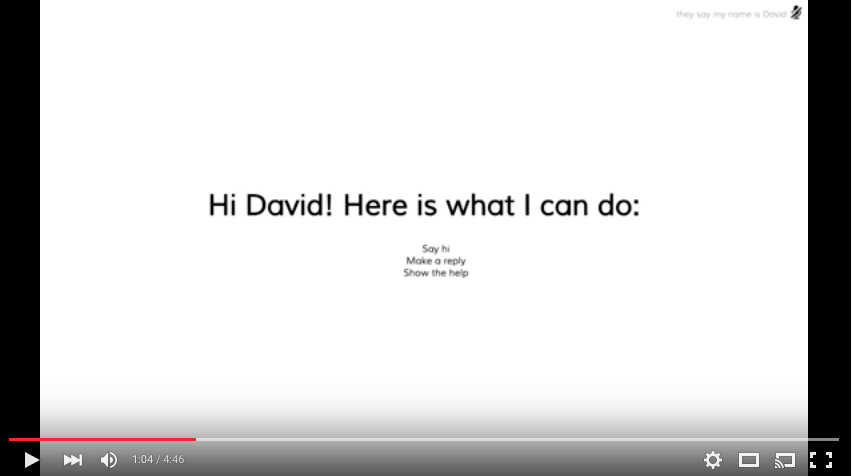mysam
v0.2.1
Published
An open "intelligent" assistant for the browser and NodeJS that can listen to you and learn.
Downloads
62
Readme
Say hi, SAM
Sam is an open-source, web-based "intelligent" assistant. It can listen to you, learn new actions and is extensible with JavaScript plugins running in any modern browser.
Watch this video to see what Sam can do:
Getting started
mkdir mysam-test
cd mysam-testCreate the following index.html
<!DOCTYPE html>
<html>
<head>
<title>MySam</title>
<link href="https://fonts.googleapis.com/css?family=Muli:400,400italic" rel="stylesheet" type="text/css">
<link rel="stylesheet" href="https://maxcdn.bootstrapcdn.com/font-awesome/4.3.0/css/font-awesome.min.css">
<link rel="stylesheet" href="https://unpkg.com/[email protected]/dist/styles.css">
</head>
<body>
<div id="content" class="full"></div>
<script src="https://unpkg.com/[email protected]/dist/mysam.js"></script>
<script src="https://unpkg.com/[email protected]/dist/mysam-ui.js"></script>
<script>
// Initialize API (in the browser)
const app = mysam();
// Load the UI
const sam = mysamUi(document.getElementById('content'), app);
</script>
</body>
</html>Then serve serve the folder from a webserver, e.g. with
npm i -g node-static
staticAnd visit it in a browser (here localhost:8080).
Writing a plugin
In the <script> section above add
// Add a new plugin to the list of learnable actions
sam.learn('myplugin', {
description: 'Say hello from my plugin'
});
// Register the action to perform when a classificationc comes in
sam.action('myplugin', (el, classification = {}) => {
// `el` is the main HTML element to render in
// classification has information about what was said
el.innerHTML = 'Hello from myplugin! You said: '
+ classification.text;
});Usage with Webpack
mkdir mysam-test
cd mysam-test
npm init --yesAdd the following webpack.config.json:
const path = require('path');
const webpack = require('webpack');
const merge = require('webpack-merge');
const UglifyJSPlugin = require('uglifyjs-webpack-plugin');
const env = process.env.NODE_ENV || 'development';
const commons = {
context: path.join(__dirname, 'src'),
entry: './index.js',
output: {
filename: path.join('dist', 'app.js')
},
module: {
rules: [{
test: /\.jsx?$/,
exclude: /node_modules\/(?!(feathers|mysam|mysam-ui))/,
loader: 'babel-loader'
}]
},
node: {
fs: 'empty'
}
};
const dev = {
devtool: 'source-map',
devServer: {
port: 3030,
contentBase: '.',
compress: true
}
};
const production = {
devtool: 'cheap-module-source-map',
output: {
filename: path.join('dist', 'nina.js')
},
plugins: [
new UglifyJSPlugin({
compress: {
warnings: false,
screw_ie8: true
},
comments: false,
sourceMap: false
}),
new webpack.DefinePlugin({
'process.env.NODE_ENV': JSON.stringify('production')
})
]
};
module.exports = merge(commons, env !== 'development' ? production : dev);Install devDependencies
npm install babel-core babel-loader babel-polyfill babel-preset-es2015 babel-preset-react uglify-js uglifyjs-webpack-plugin webpack webpack-dev-server webpack-merge --save-devAnd main dependencies
npm install mysam@pre mysam-ui react react-dom --saveAdd a start script to package.json:
"start": "webpack-dev-server",And run npm start.
Coming soon!
Website and more in-depth documentation coming soon!




